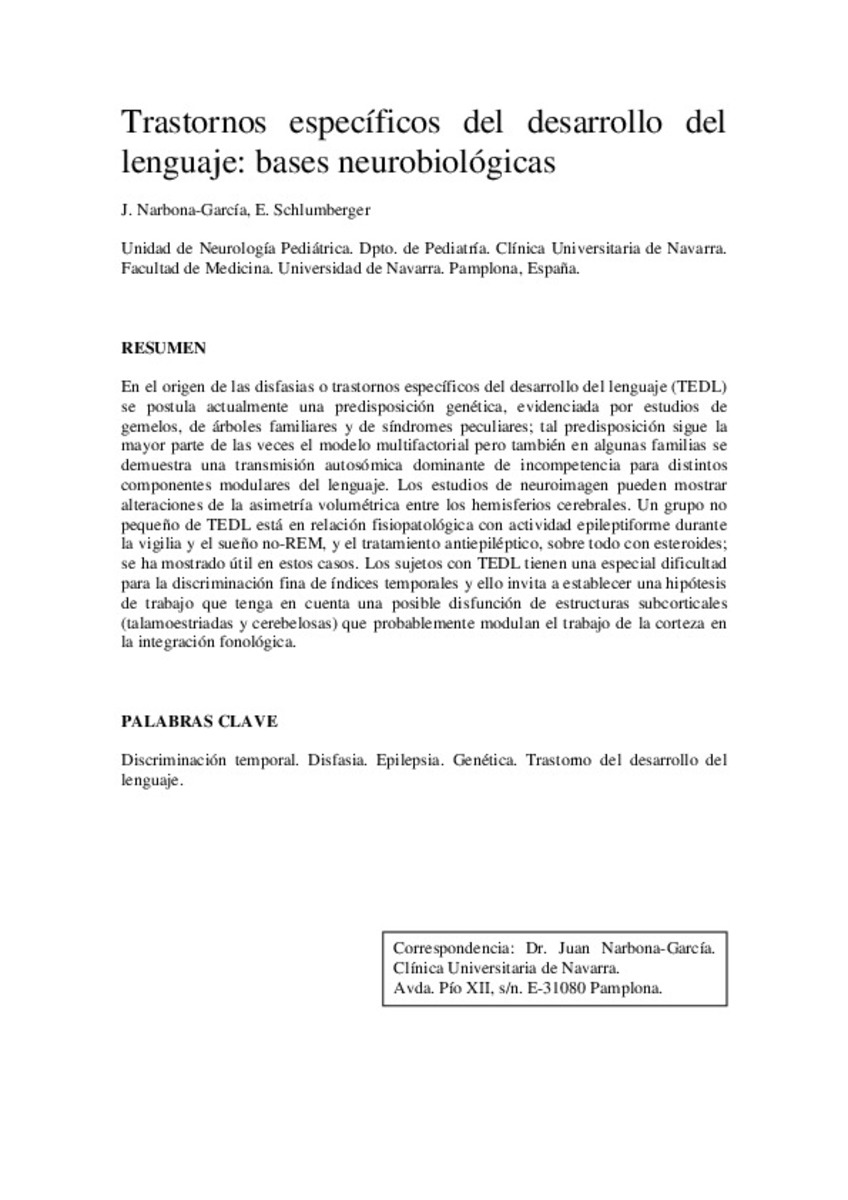Trastornos específicos del desarrollo del lenguaje: bases neurobiológicas
Palabras clave :
Discriminación temporal
Disfasia
Epilepsia
Genética
Trastorno del desarrollo del lenguaje
Fecha de publicación :
1999
Editorial :
Cesar Viguera
Cita:
Narbona-García J, Schlumberger E. Trastornos específicos del desarrollo del lenguaje: bases neurobiológicas. Rev Neurol. 1999 Feb;28 Suppl 2:S105-9.
Aparece en las colecciones:
Estadísticas e impacto
0 citas en

0 citas en

Los ítems de Dadun están protegidos por copyright, con todos los derechos reservados, a menos que se indique lo contrario.







